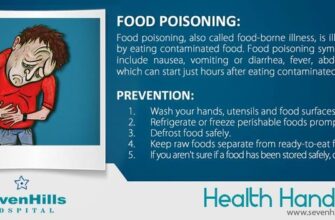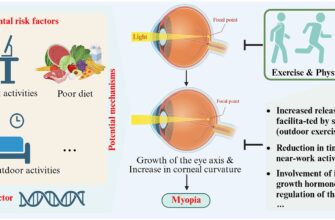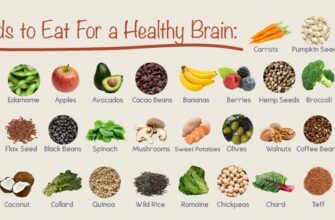Ever notice your digestive system seems to have its own seasonal calendar, thriving in winter but staging a rebellion when the mercury rises or leaves start to fall? You`re not alone. While some might dismiss a rumbling stomach as just “one of those things,” medical professionals are increasingly pinpointing genuine seasonal patterns in gastrointestinal (GI) ailments and infectious diseases.
- The Summer-Autumn Surge: A Tale of Travel and Transmitted Troubles
- Beyond Beaches: Understanding the Mechanisms
- Common Culprits and Their Calling Cards
- Proactive Gut Defense: Your Seasonal Survival Guide
- 1. The Golden Rule of Hygiene: Wash Your Hands
- 2. Mind What You Eat (and Where)
- 3. Hydration and Healthy Habits
- 4. Seek Medical Advice When Needed
The Summer-Autumn Surge: A Tale of Travel and Transmitted Troubles
As summer gently fades into autumn, many of us pack away our swimsuits, but unfortunately, we might also be unpacking something less desirable: a fresh batch of digestive woes. Experts, such as Dr. Olga Torozova, a prominent voice in this field, highlight these seasons as prime time for an uptick in GI-related complaints. Why? The explanation, while multifactorial, is not as complex as the gut microbiome itself.
Think of it as a grand, global exchange program for microbes. Summer is peak travel season. We venture to sunnier climes, explore new cuisines, and perhaps relax our stringent hygiene habits a tad too much. Upon our return, we bring back not just souvenirs, but also a diverse collection of microscopic passengers – some benevolent, others less so. These can range from common foodborne bacteria to more exotic viral or parasitic infections picked up from unfamiliar environments.
Autumn then often becomes the secondary wave. As people reconvene in schools, offices, and public spaces, these newly acquired pathogens find fertile ground for wider transmission. It`s a classic case of what goes abroad, often doesn`t stay abroad – much to our digestive system`s chagrin. One might even say our stomachs are simply participating in their own version of “cultural exchange,” albeit a rather uncomfortable one.
Beyond Beaches: Understanding the Mechanisms
The seasonality isn`t solely about swapping germs at the airport. Several factors subtly contribute to this pervasive pattern:
- Dietary Shifts: Summer often means an increase in raw foods, fresh salads, and the occasional indulgence in street food. While delightful, these can sometimes be vectors for contamination if not prepared and stored correctly. Furthermore, a sudden change in diet can disrupt the delicate balance of the gut flora, leading to temporary digestive discomfort.
- Hydration and Heat Stress: Higher ambient temperatures increase the risk of dehydration, which directly impacts digestive function. Moreover, heat can accelerate bacterial growth in foodstuffs, significantly increasing the risk of spoilage and subsequent food poisoning incidents.
- Immune System Fluctuations: Our immune system`s robustness can be influenced by seasonal changes. Variations in sunlight exposure (affecting Vitamin D levels) and the stress associated with travel or changing routines can subtly compromise our immune response, rendering us more susceptible to infections.
- Water Sources: When traveling, particularly to regions with different public health and sanitation standards, consuming local tap water or even ice can introduce unfamiliar pathogens to a naive digestive system.
Common Culprits and Their Calling Cards
While the specific pathogen might vary geographically and individually, the symptoms of seasonal GI issues are often universally familiar: nausea, vomiting, diarrhea, abdominal cramps, and a general feeling of malaise. Common offenders frequently include:
- Bacterial Infections: Pathogens such as *Salmonella*, *E. coli* (especially enterohemorrhagic strains), *Campylobacter*, and *Shigella* are frequently linked to foodborne illnesses.
- Viral Infections: Norovirus and rotavirus are highly contagious and notorious for sweeping through communities, particularly in semi-closed environments like cruise ships or schools.
- Parasitic Infections: Less common but potentially persistent, parasites like *Giardia lamblia* or *Cryptosporidium parvum* can be acquired through contaminated water or food, especially during international travel where water treatment methods may differ.
Proactive Gut Defense: Your Seasonal Survival Guide
The good news is that we are not entirely at the mercy of microbial tourism or seasonal shifts. A thoughtful, proactive approach can significantly reduce your risk of succumbing to these periodic digestive disturbances:
1. The Golden Rule of Hygiene: Wash Your Hands
It sounds deceptively simple, almost to the point of being clichéd, yet rigorous handwashing remains the single most effective defense against the transmission of numerous infectious agents. Soap and water, vigorously applied for at least 20 seconds, especially before preparing or consuming food and after using the restroom, is non-negotiable. If traditional washing facilities are unavailable, a hand sanitizer with at least 60% alcohol can serve as a temporary alternative.
2. Mind What You Eat (and Where)
- Cook Thoroughly: Always ensure that all meat, poultry, and eggs are cooked to their recommended internal temperatures to eliminate harmful bacteria.
- Wash Produce: Rinse fruits and vegetables thoroughly under running water, even if you intend to peel them. The act of peeling itself can transfer contaminants from the surface to the edible portion.
- Be Wary of Buffets: Food left at lukewarm temperatures for extended periods is an ideal breeding ground for bacterial proliferation. Exercise caution.
- “Boil it, cook it, peel it, or forget it”: This venerable adage remains profoundly true when traveling to regions with differing food safety and sanitation practices.
3. Hydration and Healthy Habits
Maintaining optimal hydration is crucial for overall physiological function and efficient digestion. When in doubt about local water quality, opt for sealed bottled water or employ purification methods. Furthermore, consistently supporting your general immune health through adequate sleep, a balanced and nutrient-rich diet, and regular physical activity significantly strengthens your body`s intrinsic defenses against opportunistic microbial invaders. Consider integrating probiotics into your routine to help maintain a healthy gut flora, particularly after periods of travel or during seasonal transitions.
4. Seek Medical Advice When Needed
If gastrointestinal symptoms persist or worsen, particularly if accompanied by high fever, signs of severe dehydration, or the presence of blood in stool, it is imperative to consult a qualified healthcare professional promptly. Self-diagnosis and inappropriate self-treatment can sometimes mask or even exacerbate underlying medical conditions.







